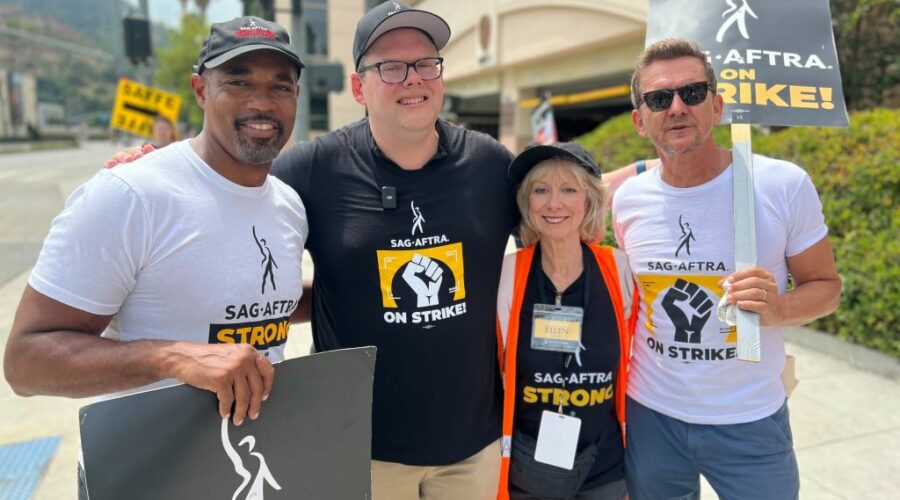Duncan Crabtree-Ireland Says SAG-AFTRA Hasn’t Heard From AMPTP But Hopes WGA “Can Make Real Progress” In Talks
SAG-AFTRA’s chief negotiator Duncan Crabtree-Ireland is hopeful that Friday’s meeting between the Writers Guild and the AMPTP helps push the needle forward as the actors await their turn to get back to the bargaining table.
“No, we haven’t heard from the AMPTP, but we have heard that they have a second meeting with the Writers Guild which is very encouraging,” he told Deadline. “I hope that means that there will be some progress and maybe some momentum that will get started, but we have not had any outreach from the AMPTP at this point.”
Related Stories
WGA & AMPTP To Resume Bargaining On Friday
SAG-AFTRA Interim Agreements: List Of Movies And Series Granted Waivers
“The writers have been on strike for more than 100 days so I certainly have no problem with the AMPTP wanting to talk to them [first], and I hope that they can make real progress,” he added. “So we’re in constant coordination with the Writers Guild and we are standing in full solidarity with each other. So I’m not at all worried about who the AMPTP talks to first.”
Following the WGA’s 100-day strike milestone on Wednesday, Crabtree-Ireland explained why it’s been so important for SAG-AFTRA to be side-by-side with writers since day one. When the actors guild declared it was on strike on day 73 of the WGA strike, it helped reinvigorate sunburned picketers who needed a little boost.
“Solidarity is so powerful and I know that our members are buoyed by the Writers Guild being out here together with us working together and putting on picket lines together like we’re doing [in L.A.] and in New York,” he said. “It’s something that strengthens both unions’ efforts, and I know our members helped encourage the writers when we came out on our first day. We’ve been out here since day one of the writers strike, and we’re all in this together to ultimately win a fair deal.”
Additionally, Crabtree-Ireland shared more information about the controversial interim agreements and why they’re imperative.
“It’s a great idea because No. 1, it proves that when CEOs say that our contract proposals are unrealistic, they’re wrong, they’re mistaken or lying because the fact of the matter is that major independent producers and all kinds of independent productions are saying we can work on these terms we can produce. If smaller independents can make projects under these terms, why can’t the studios [which] have way more resources? No. 2, it really is an opportunity for companies that are outside of the AMPTP’s ambit to provide some employment to crew members,” he said.
“A lot of attention has been put on stars who are in these projects, but these projects employ crew members, background actors and day players,” he added. “They employ a lot of people who really need the work to help mitigate the damage that’s been caused by the AMPTP’s refusal to make a fair deal. There’s a whole host of reasons why interim agreements are a good idea, but that’s the case we’re making to our members and there’s a great deal of support amongst our membership for that.”
Must Read Stories
Guild & AMPTP Resume Bargaining Today; Latest Photos From Picket Lines; More
Round Of Layoffs Ends With Roughly 60 Affected Staffers Notified; TV Lit, Music, IT Units Hit
‘Last Voyage Of The Demeter’ Charts $750K In Previews; ‘Barbie’ Crossing Half-Billion U.S.
Hip-Hop At 50: Cheo Hodari Coker On Evolution, Icons & The Spirit That Remains
Read More About:
Source: Read Full Article







